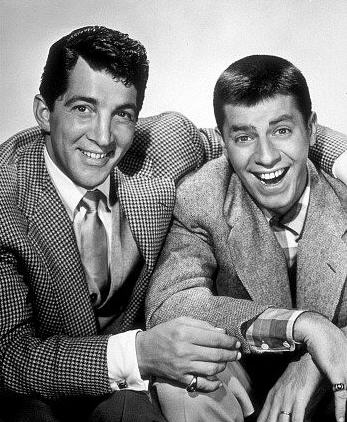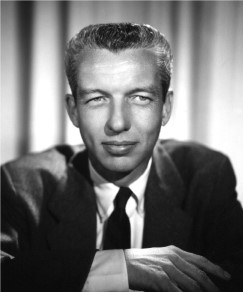Harold Peary originated the role of the Great Gildersleeve on the Fibber McGee and Molly radio program in 1939. The character was an antagonist for Fibber McGee and proved so popular that he got his own radio show starting in 1941. Peary played the role until 1950 when he left it for the ill-fated Harold Peary show.
Before that happened, the Great Gildersleeve went from radio to feature films, including four that were directly adapted from the characters in the radio. The Warner Archives Great Gildersleeve Movie features all four of these wartime movies plus the film Seven Days Leave in which Gildersleeve plays a much smaller part.
So how do the films hold up? Let’s take a look at each one:
The Great Gildersleeve (1942)
This film is probably the truest to the radio program. The plot has a lot of gags and bits, but the central point is that a woman mistakenly thinks Gildersleeve has proposed to her. Unfortunately for Gildersleeve, the woman is the unmarried sister of Judge Hooker. And Judge Hooker is questioning Gildersleeve’s fitness to be guardian to his niece and nephew. His goal throughout the movie is to prove he’s fit and to stop Judge Hooker from revoking his custody.
This a good film. It’s well-balanced. A lot of goofiness comes out of Gildersleeve’s quest, but his goals make you want to cheer for him. The heart of the Great Gildersleeve series is that he does care for his family. It’s a fun movie with a lot of great twists and well-worth watching.
Gildersleeve’s Bad Day (1943)
Gildersleeve has jury duty for a gangster who’s on trial for a bank robbery. Unbeknownst to him, he’s been identified by the gangster’s mob as the one man who could persuade the jury to acquit their guilty boss. Unbeknownst to them, he’s already decided to push for acquittal on his own.
This one is decent and has some madcap hilarious scenes, including a great chase involving Gildersleeve at the end. However, there are a few elements that come off as dumb rather than funny. Still, not a bad watch overall.
Gildersleeve on Broadway (1943)
Gildersleeve’s niece Marjorie fears that her beau who is in New York is not being faithful to her, so Gily catches a train to find out what the score is. He’s traveling with Mr. Peavy, the town pharmacist who fears a wealthy woman’s decision which could spell doom for his drug store.
This is probably the most funny of the films. The movie keeps a quick pace as the situation continues to spiral out of Gildersleeve’s control. It’s delightfully over the top fun. Its only flaw is that it ends far too abruptly.
Gildersleeve’s Ghost (1944)
Based on the radio series, someone decided that what the gentle, domestic comedy of the Great Gildersleeve called for was a comedy horror movie. The plot begins when two ghosts of Gildersleeve’s ancestors decide to help him win an election for Police Commissioner by hypnotizing a gorilla of a mad scientist so that Gildersleeve can discover an invisible woman. That sure sounds like a typical Gildersleeve plot.
This one has some funny moments, but it was a really flawed film. For one thing, there’s not enough plot for an hour film, so they keep doing the same gags over and over again, such as mistaken identity around the gorilla being there and someone in gorilla suit. Mr. Peavey says, “I wouldn’t say that,” about a dozen times.
Nick Stewart gets a lot of screen time as Chauncey, a chauffeur written as the racist “cowardly Negro” stereotype. It’s not just a minor point, it’s a big part of the second half of the film. Stewart was a good actor who deserved better than this role. Stewart did eventually get better roles as he’d voice Brer Bear in Song of the South and play Lightnin’ on the Amos and Andy TV show, before founding the Ebony showcase, the first Black-owned theater, where Black Actors could play way better parts than the one he got in this film.
The one thing I do like is the title sequence. It looks spooky and shows a lot of labor went into it. The film itself is padded and at times, unpleasant to watch. This one was understandably a franchise killer.
Seven Days Leave (1942)
Johnny Gray (Victor Mature) learns he is heir to $100,000 through the radio program, The Court of Missing Heirs. He borrows from every member of his company to have a time with his fiancée before he goes to meet the lawyer in charge of this estate, the Great Gildersleeve. Gildersleeve advises the money was left by the descendant of a Union Civil War general and will only be willed to him if he marries the descendant of a particular Confederate general who was his friend. The descendant in question is Terry Havalok-Allen (Lucille Ball) who is also already engaged to someone else.
The movie is a musical with beautifully performed numbers. Gildersleeve even gets in on one of them. There are also great orchestras in the film, including Les Brown’s with Brown playing himself, Ginny Simms shows up to sing a song, and there’s a talented dance trio. The film looks expensive and looks mostly made before the crunch of wartime cost-cutting hit Hollywood.
The movie is a treat for radio fans. First, we get to see Gildersleeve, albeit his characterization is much more like on Fibber McGee than on his own program. We also get a look at two rare radio programs. The Court of Missing Heirs was an actual radio program, with no full episodes in circulation. In addition, the film has Grey and Terry attend a taping of Truth or Consequences and get involved in a game. The earliest available radio episode of Truth or Consequences is from 1945, so this gives insight into how the show looked and sounded in its earliest days.
In addition, Lucille Ball is good in this. She has great lines and good moments when her character is rebuffing Grey’s advances. In addition, Marcy McGuire is a lot of fun as Terry’s sixteen-year-old sister. In a rarity for these films, she was actually sixteen and not only was funny, but her musical numbers were great.
Everything works about this film except the lead character. Johnny Grey is not likable at all. He’s written as a greedy narcissist and none too bright. After all, he’s stringing his own fiancee along while he sets out to break up someone else’s engagement so that he can get big money. While the movie tells us he changes, we don’t see much evidence or growth. Grey sets out to win Terry over by being as obnoxious, intrusive and irritating as possible. My favorite scenes in the movie are the ones where he’s put in his place. The only reason he wins are genre conventions.
If you find Johnnie irritating and unlikable as I did, the question becomes whether that ruins the movie for you. For me, the good stuff in it out-weighs the bad, but your mileage may vary. In a scene my wife found disturbing, Johnny crosses a serious line by kissing Terry by force. My wife found some parts of the film very disturbing, including one where Grey forcibly kissed Terry. Looking at it through modern eyes, Johnnie Grey’s behavior is really predatory and the movie’s message that seems to affirm the behavior illustrates that even with the Hayes code, Hollywood films could have some creepy ideas about sex in them. This is not one I’d say is definitely not for kids.
Overall Thoughts:
The Gildersleeve films came before the TV sitcom was invented and often feel more like TV episodes than actual movies. The first three films managed to expand enough to tell a passable story but Gildersleeve’s Ghost only had enough good material for a half-hour TV episode and then repeated stuff to fill up the run-time. Seven Days Leave is fun for those willing to overlook Johnny Grey’s general sleaziness. Taken together, it is an eclectic set of wartime comedy.
If you’re a fan of old-time radio and the Great Gildersleeve, the set is worth checking out for all of the highlights, unless the lowlights are deal-breakers for you.
Rating: 3.5 out of 5.0
If you enjoyed this post, you can have new posts about Detective stories and the golden age of radio and television delivered automatically to your Kindle.
This post contains affiliate links, which means that items purchased from these links may result in a commission being paid to the author of this post at no extra cost to the purchase



